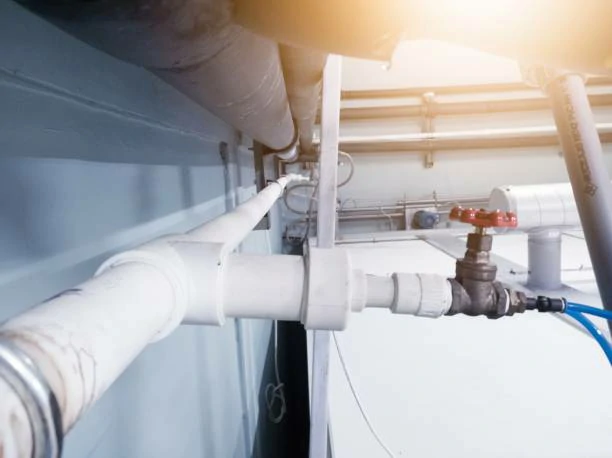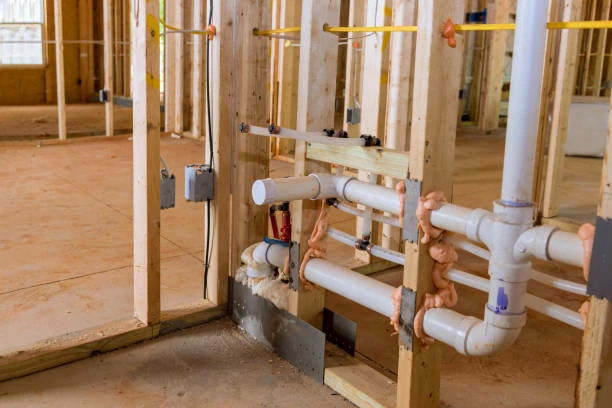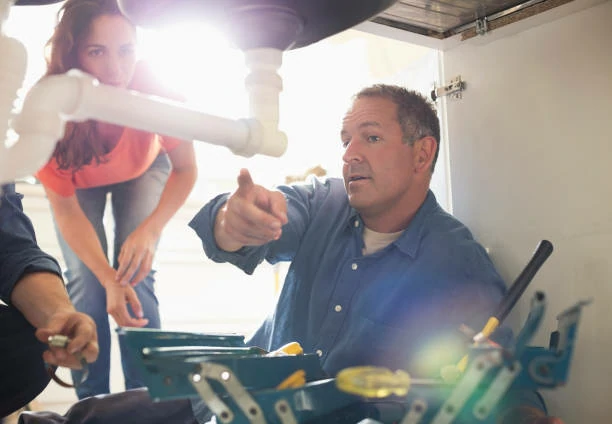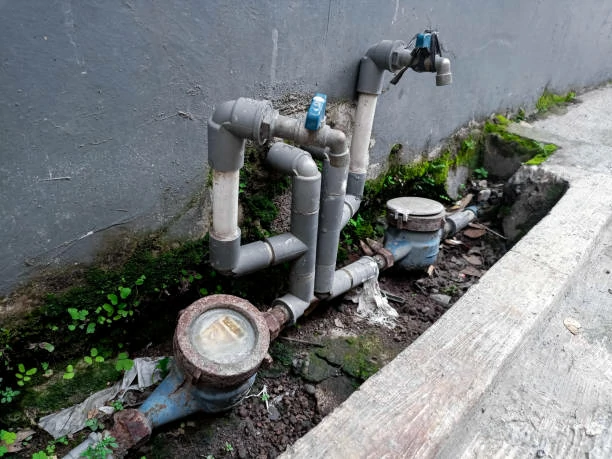PVC pipes play a vital role in building plumbing systems, offering a range of advantages that make them a preferred choice for both residential and commercial construction projects. Their properties, from durability to ease of installation, contribute to efficient and reliable water distribution, waste management, and ventilation systems within buildings.
Advantages of PVC Pipes in Building Plumbing
Durability and Longevity
PVC pipes provide exceptional durability and longevity. They resist corrosion, rust, and chemical damage, which ensures their long-term performance in various environmental conditions. Unlike metal pipes, PVC does not degrade over time when exposed to moisture, chemicals, or varying pH levels. This resistance to environmental stressors translates into fewer replacements and repairs, reducing long-term maintenance costs.
Lightweight and Easy Handling
The lightweight nature of them simplifies transportation and installation. Compared to traditional metal pipes, PVC pipes are easier to maneuver, reducing the labor and time required for installation. This ease of handling also minimizes the risk of injury and damage during the construction process. For high-rise buildings and complex plumbing systems, the lightweight property of The lightweight nature of them simplifies transportation and installation. Compared to traditional metal pipes, PVC pipes are easier to maneuver, reducing the labor and time required for installation. This ease of handling also minimizes the risk of injury and damage during the construction process. For high-rise buildings and complex plumbing systems, the lightweight property of PVC pipes becomes a significant advantage.
becomes a significant advantage.
Versatile Applications
Water Supply Systems
PVC pipes effectively deliver clean and potable water throughout buildings. Their smooth interior surface minimizes friction, ensuring efficient water flow and reducing the risk of blockages. Additionally, PVC pipes resist biofilm formation and scaling, which helps maintain water quality. They come in various sizes and pressure ratings, making them suitable for both main water lines and smaller distribution pipes within buildings.
Waste and Drainage Systems
In waste and drainage systems, PVC pipes handle the transportation of wastewater and sewage efficiently. Their smooth interior surfaces prevent the accumulation of waste materials, reducing the likelihood of clogs and blockages. PVC pipes also resist corrosion from acidic or alkaline waste, ensuring reliable performance over time. The use of The lightweight nature of them simplifies transportation and installation. Compared to traditional metal pipes, PVC pipes are easier to maneuver, reducing the labor and time required for installation. This ease of handling also minimizes the risk of injury and damage during the construction process. For high-rise buildings and complex plumbing systems, the lightweight property of PVC pipes becomes a significant advantage.
in drainage systems helps maintain hygiene and sanitation within buildings.
Ventilation Systems
PVC pipes are used in ventilation systems to transport air and gases safely and efficiently. They resist corrosion from moisture and chemicals in the air, ensuring long-term performance. Additionally, the lightweight nature of The lightweight nature of them simplifies transportation and installation. Compared to traditional metal pipes, PVC pipes are easier to maneuver, reducing the labor and time required for installation. This ease of handling also minimizes the risk of injury and damage during the construction process. For high-rise buildings and complex plumbing systems, the lightweight property of them becomes a significant advantage.
simplifies the installation of ventilation ducts, especially in complex and multi-story buildings. By providing efficient air transport, PVC pipes contribute to improved indoor air quality and overall building health.
Installation Benefits
Easy Joining Methods
Various joining methods, such as solvent welding, rubber gasket joints, and mechanical fittings, ensure secure and leak-free connections. These methods provide flexibility in installation, accommodating different project requirements and site conditions. Solvent welding, for instance, creates a strong and seamless bond between pipe sections, ensuring a reliable and leak-proof system. Properly installed joints enhance the integrity of the plumbing system, reducing the risk of leaks and water damage.
Flexibility and Adaptability
PVC pipes offer flexibility and adaptability in installation. They can be easily cut, shaped, and joined to fit the specific layout and design of a building’s plumbing system. This flexibility is particularly useful in retrofitting projects, where existing infrastructure may require custom solutions. The ability to adapt them to various configurations ensures that they can meet the unique needs of each construction project.
Resistance to Environmental Factors
PVC pipes resist environmental factors such as UV radiation, temperature fluctuations, and moisture. This resistance makes them suitable for both indoor and outdoor applications. In outdoor installations, UV stabilizers in PVC pipes protect them from sunlight degradation, ensuring long-term performance. Additionally, PVC pipes maintain their structural integrity and functionality in various temperature ranges, making them suitable for diverse climates.
Environmental Considerations
Sustainability and Recyclability
PVC pipes contribute to environmental sustainability through their long service life and recyclability. Their durability reduces the frequency of replacements, minimizing waste and the environmental impact of manufacturing new pipes. Additionally, PVC pipes can be recycled and repurposed into new products, supporting a circular economy. By choosing PVC pipes, builders and developers promote sustainable practices and reduce the environmental footprint of construction projects.
Energy Efficiency
The smooth interior surface of them reduces friction loss, improving the energy efficiency of water transport systems. In pressurized water supply systems, this efficiency translates into lower energy consumption for pumping water. Additionally, the lightweight nature of them reduces the energy required for transportation and installation, further enhancing their environmental benefits. By reducing energy usage, PVC pipes contribute to more sustainable and cost-effective building operations.
Cost-Effectiveness
Lower Material and Installation Costs
PVC pipes offer lower material and installation costs compared to traditional metal pipes. Their affordability makes them an attractive option for budget-conscious construction projects. The ease of handling and installation reduces labor costs, accelerating project timelines and minimizing disruptions. These cost savings allow developers to allocate resources more efficiently, potentially improving other aspects of the building.
Reduced Maintenance Expenses
The durability and resistance to corrosion, chemicals, and environmental stressors result in reduced maintenance expenses for PVC pipe systems. Building owners and managers benefit from fewer repairs and replacements, lowering the total cost of ownership over the building’s lifespan. This cost-effectiveness, combined with reliable performance, makes PVC pipes a practical and economical choice for building plumbing systems.
Innovations in PVC Pipe Technology
Enhanced Formulations and Additives
Ongoing innovations in PVC pipe technology focus on enhancing their performance and durability. New formulations and additives improve the pipes’ resistance to UV radiation, temperature fluctuations, and chemical exposure. These advancements ensure that PVC pipes continue to meet the evolving demands of modern construction and plumbing systems. By staying at the forefront of material science, PVC pipe manufacturers provide solutions that address the challenges of contemporary building projects.
Smart Plumbing Systems
The integration of smart technology in plumbing systems is on the rise. PVC pipes now incorporate sensors and monitoring devices that provide real-time data on water flow, pressure, and quality. This innovation allows for proactive maintenance and efficient management of plumbing systems, ensuring long-term reliability and performance. Smart plumbing systems enhance the overall functionality and sustainability of buildings, contributing to improved operational efficiency and occupant satisfaction.
Conclusion
PVC pipes offer a range of advantages that make them an ideal choice for building plumbing systems. Their durability, lightweight nature, versatility, and cost-effectiveness contribute to efficient and reliable water supply, waste management, and ventilation within buildings. Innovations in PVC pipe technology continue to enhance their performance, ensuring that they meet the evolving needs of modern construction projects. By choosing PVC pipes, builders and developers can create sustainable, efficient, and high-performing plumbing systems that support the overall health and functionality of buildings.
Contact
IFAN is a professional manufacturer with 30 years of experience, dedicated to producing high-quality plastic pipes, fittings, and valves. Our products include brass valves, PPR valves, as well as various pipes and fittings to meet different customer needs. Whether you need plumbing and drainage pipes or valve products, IFAN can provide a diverse range of high-quality, cost-effective products to support your projects. Below is our contact information.
We will reply your email or fax within 24 hours.
You can call us at any time if there is any question on our production.
For more information,pls visit our webside https://www.ifanplus.com/
Pls Mailto: [email protected]






